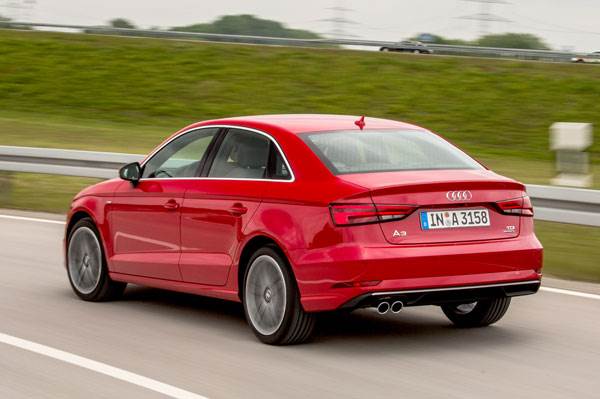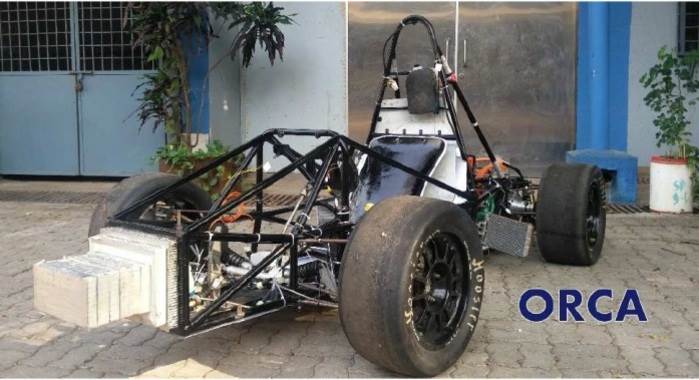The students of IIT Bombay have been involved in developing Formula race cars for the past eight years. After developing the Agni, Prithvi and all-electric EVo series race cars, the IIT Bombay Racing team’s fifth and latest edition of an all-electric race car is called the Orca. The team will take part in the Formula Student competition in the UK this July with the new race car.
Designed to have a maximum speed of 145kph and a theoretical acceleration of 0-100kph in just 3.47 seconds, the Orca is faster than various models of Lamborghini, Porsche and other renowned sportscars. Some of the incorporations made this year are in-house-manufactured carbon-fibre bodyworks, a steel tube spaceframe chassis and a battery pack voltage of 389 volts.
The key design goals of the Orca include:
Weight reduction: Target weight of 242kg (2015 vehicle EVo 4.0: 302kg) has been achieved through an optimised steel spaceframe, wheel assemblies, carbon-fibre suspension linkages and carbon-fibre bodyworks. 40 percent decrease in drivetrain weight and 12 percent decrease in accumulator weight, even with 18 percent higher energy.
Vehicle handling: Steering and suspension geometry have been designed based on lap time simulations run on an improved full-car model developed. Blade-type anti-roll bars with adjustable stiffness and torque vectoring using feedback provide vehicle stability and tenability.
Testing and validation: Event-wise driver training and tuning to completely utilise the car’s capability. Increased in-house material testing (IA, Carbon-fibre panels) to optimise parts for weight and reliability. Experimental validation of design and analysis to ensure reliability.
In-house carbon-fibre manufacturing: Carbon-fibre lay up using vacuum bagging has been successfully completed in-house for manufacturing of bodyworks using medium-density fibreboard moulds. Various lay ups are being tested for manufacturing a carbon-fibre monocoque next year.
The Orca project is believed to cost around Rs 45 lakh, and has received support from a number of companies in the automotive industry including Tata Motors, NRB Bearings and Ceat Tyres.




Comments
Member Login
Personal Details
No comments yet. Be the first to comment.